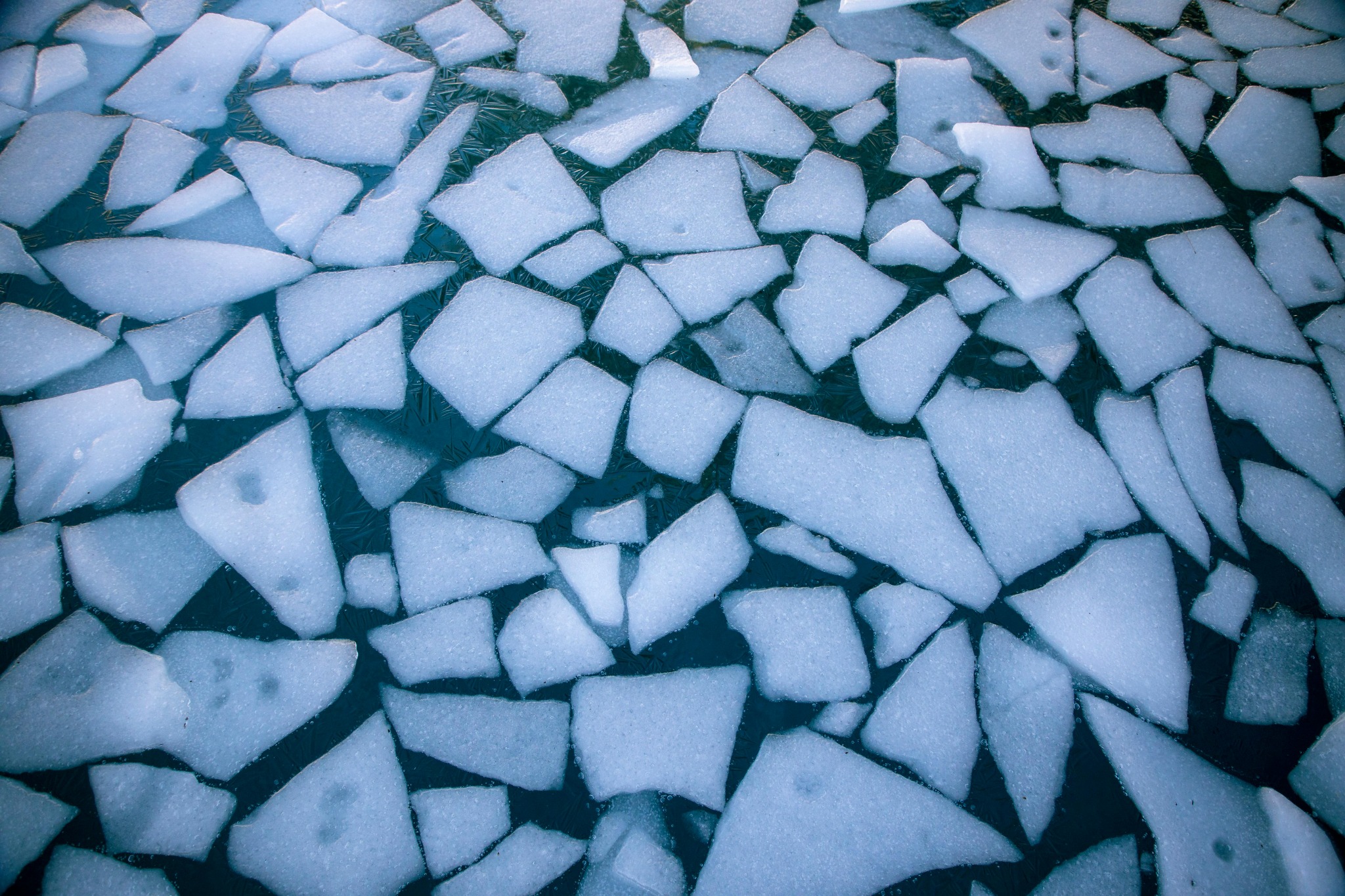
Break-Up
By Elizabeth Bourne
Thirty years ago she spent time in Moosonee, during the dark. That winter the sky was never clear. The best it got was when the moon’s blue fingers tore a rift in the clouds. Then, for a few minutes, she could see across the Moose River to a huddle of shanties that seemed too flimsy to stand. Moonlight gleamed on the chrome bumper of the ancient black Cadillac sunk in the river ice. Someone drove it out for ice fishing, then abandoned it.
In the river’s middle stood a tall pole with a red rag tied to the end. After New Years it had been drilled deep into the ice. At the same time, a pad of blue lined paper and a pencil appeared on the receptionist’s counter of the Polar Bear Lodge. You wrote your name, the date you believed the pole would fall, and then stuffed five bucks in a glass jug. Break-up started when the pole collapsed. The one who guessed right took home the jar.
She’d read about the break-up in the Toronto Star; about this tiny town at the end of the Canadian National train line. She wanted to see it. So she left her husband, her job, her home, and took the train north. She left everything, this pattern would repeat many times, though she chose not to see it.
Moosonee was not beautiful. No more than five hundred lived there. Not many women, and the men were Cree, or French trappers, or white government agents. They came into the Polar Bear Lodge to try their luck with her. Much hopeful liquor was spilled, along with so many questions. What did she do? Was she married? Why had she come here? How long would she stay?
Her answer was always, “I’m here for the break-up.”
Twice a week the train from Sault Ste Marie chugged into town, disgorging mail. There were letters. Why did you go? We need to talk. Call me. Write me. Please write me. When are you coming back? Are you coming back? At first, she sent postcards enumerating that day’s temperature. -26. -33. -16. Later she stopped.
Once a week, a bush plane came to collect mail for the faraway. The pilot’s name was Charlie. He was missing a front tooth and silver streaked his black pony tail. When she heard the plane’s drone, she’d wait for him in the lobby. He’d give her a grin. “Want a ride?”
“Always,” she said.
The plane lifted with an albatross grace. They flew north. Seals lay like black slugs on the glittering ice, and the occasional polar bear ghosted across the emptiness. While she looked out the window, Charlie would put a hand on her thigh. She allowed these illicit touches, and as far as she knew, he never told the other men the liberties he took with her.
The final trip took place in harsh sunlight. Winter was over. They bounced down on the Moose River with jaw breaking force. He said, “Break-up comes soon. I’ll have to switch to pontoons. You will leave.” It might be the longest sentence he had ever spoken.
“Yes,” she said. “I will leave.”
He kept her a moment. His jaw clenched. “You’ll come back. The ice has you. You’ll be back.”
“I won’t,” she said. “I’m going to the coast where it rains and the trees are taller than buildings. I’ll never be back.”
Now I stand on a faraway shore watching sea ice surge in the Arctic twilight. Black hulks frozen in dry dock shadow me. I’ve been taking pictures of the sea, my fingers frozen to the camera. It’s cold. -28, maybe -30. My companion stands behind me talking to his dog in a language I don’t understand. This is a different town. A different Arctic.
I think of the decision made in Moosonee. Everything about that woman is blurred by memory. None of it real. When she left, she didn’t know the Arctic had claimed her. For decades it waited, a violet shadow in her heart, waiting through another marriage, a child, and the terrible end of love. When there was nothing left but grief and a jar of ashes, the ice called, and I came back.
Elizabeth Bourne is a published short fiction writer, and her work has been seen in a number of genre-related magazines. Her last published story was in “Welcome to Dystopia” and predicted the pandemic two years in advance, and a very different outcome. She is also a painter and photographer and director of the Spitsbergen Artists Center and Residency. Her work can be seen at www.philotera.com

Post a comment